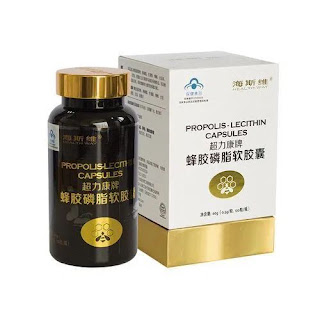Godwin Okpene: Unmasking the Real Owners of Nigeria’s Extractive Assets
One of the ways in which corruption continues to ravage the economies of resource-rich countries is through hidden ownership of companies operating in their extractive industries. Hidden ownership allows companies to avoid taxes through practices such as gold-platting and transfer pricing. It also allows public officials or highly connected individuals to use their positions to corner extractive assets at the expense of the larger society.
In most resource-rich countries, especially those in the developing world, the danger of anonymous ownership is not just a textbook illustration. It is a real and present problem. Governments and citizens of these countries have lost and continue to lose billions of dollars to such schemes, aided, in no small measure, by weak regulation and lack of transparency in the management of mineral assets.
Ownership transparency, through beneficial ownership reporting, is the latest global initiative to combat this threat. A beneficial owner is described as “the real, life and blood individual who profits from or exercises control over a company”. When companies are incorporated for the purpose of hiding conflict of interests or perpetrating other illegal activities, the names of beneficial owners are deliberately obscured from public view. When a company is incorporated in one country but carries out operation in other jurisdictions, records of its true owners may deliberately be hidden in a labyrinth. Requiring companies to disclose the identities of their real owners at the point of incorporation or transaction, as well as providing public access to the register of real owners, is the objective of beneficial ownership reporting.
The Extractive Industries Transparency Initiative (EITI) requires all EITI-implementing countries to, by 2020, fully disclose identities of beneficial owners of all companies that bid for, operate or hold stakes in assets in the extractive sector. The Nigeria Extractive Industries Transparency Initiative (NEITI) began providing information about beneficial owners of assets in the extractive sector in 2015, following its inclusion in an EITI pilot. In the NEITI 2012 industry audit reports, ownership information was published for forty out of forty-two companies covered in the oil and gas audit, and thirty-two out of sixty-five companies in the solid minerals audit.
However, the current form of beneficial ownership reporting by NEITI in its 2012 and 2013 reports only goes some way in revealing the real owners of extractive industry companies. For instance, in NEITI’s first report, only about half of the companies covered listed at least one natural person as owner. Even at that, listed individuals may just be legal owners and not necessarily be the beneficial owners, and are probably only nominated directors or fronts.
The adoption of a global approach to beneficial ownership disclosure tries to address some of the challenges in identifying the real owners of extractive companies. Requiring different countries to establish public registers of beneficial owners will help to peel off at least one or more layer of corporate cover used by anonymous owners or companies registered in other countries. Publicly accessible ownership information in different countries will help to increase the scope of beneficial ownership reporting by implementing countries.
It is important to point out that not all anonymous ownerships or offshore incorporations are intended for corrupt or criminal purposes. However, the Panama Papers recently showed that off-shore companies with anonymous owners are often deliberately created for dishonest reasons. The Panama incident also showed that the problem is undoubtedly serious and widespread.
The danger posed by anonymous ownership is more serious than, and goes beyond the problem of corruption in the extractive sector. Again, like the Panama Papers showed most poignantly, anonymous ownership of companies especially in offshore locations is typically used for tax avoidance or outright tax evasion. The consequence is huge loss of revenues to government and the citizens. Developing countries lose up to $1 trillion every year due to tax evasion and other fraudulent schemes, according to the ONE Campaign. This amount is huge even by the standard of rich countries.
‘Secret’ offshore companies affect the global social, political and economic community in more profound than quantifiable ways. They are a threat to global security as they could be a major vehicle for money laundering. Still, the real danger lies in the possible role of these corporate vehicles as facilitators of the drug trade, human trafficking, terrorism financing and armed conflict. Taken together, these phenomena continue to undermine the social, economic and political stability of nations and are a major threat to global peace and security.
The need to tackle corruption and illicit financial flows led to the current initiative towards mandatory disclosure requirements for companies doing business within and across national borders. The global EITI has taken the lead on beneficial ownership disclosure by requiring EITI implementing countries to include reports of beneficial owners of extractive companies in their annual audit reports.
In furtherance of this objective, EITI recently convened a regional workshop in Abuja on beneficial ownership implementation by member countries from Anglophone and Luxophone Africa. The workshop, which held between November 1st and 3rd, ended with a resolution for implementing countries to produce a beneficial ownership roadmap by January 2017. The regional workshop was preceded by a country-level stakeholders’ consultative workshop by NEITI.
Nigeria, like other EITI implementing countries, has begun designing roadmap towards full implementation of Beneficial Ownership reporting. As prescribed by EITI, the roadmap would be ready by next year. By 2020, full implementation will commence.
As earlier noted, the pilot has shown that beneficial ownership disclosure from corporate filings is only a necessary first step in identifying the real owners of extractive industry assets. It is far from sufficient. Anonymous owners would go the extra mile, as it were, to remain hidden, if there is enough incentive for them to continue to do so. Stakeholders at the Abuja workshop, including civil society organizations, extractive companies, implementing countries and regulatory agencies, conclude that the problem is a hydra-headed monster that requires a multi-pronged antidote.
At the risk of tipping the bad guys off, some of the measures include publicly accessible national registries, sharing databases, ownership disclosure at point of incorporation or bidding for licenses, tracking financial transactions etc. Some of the measures would require greater enforcement of existing regulations while others would require new legislation or amendment to existing ones. Some would require new policies and guidelines on beneficial ownership disclosure.
At this point it is important to reiterate that while the objective of beneficial ownership reporting by EITI countries is targeted at corruption in the extractive sector, it is being implemented by non-EITI countries as well as part of a global initiative to combat other criminal activities associated with illicit financial flows. It would therefore require collaboration across various stakeholder constituencies operating in different sectors – civil society organizations, development and global governance institutions as well as regulatory and enforcement agencies involved in different sectors.
It is also part of a global strategy to increase government accountability to citizens by subjecting governance processes to greater public scrutiny. This agenda is being implemented through global coalitions like the Open Government Partnership (OGP) requiring fiscal transparency, access to information, public asset declaration and citizen engagement; and the Open Contracting Data Standard which requires governments to make details and processes of all government contracts including licenses accessible to the public.
In May 2016 at the London anti-corruption summit, President Muhammadu Buhari committed Nigeria to the implementation of these initiatives, including support for the EITI principles which the country is already implementing. There can be no doubt therefore that commitment to the openness agenda is high. So are the stakes. The openness campaign seeks to give citizens greater access to the activities of government. But the ultimate purpose transcends the mechanics of transparency, encompassing the core elements of democratic accountability.
What beneficial ownership transparency seeks to do is to put information in the public domain and thus expand the options for official accountability. It would require citizen vigilance to ensure regulatory diligence. Citizen action would not only ensure that the rules are being followed, but that citizens will demand answers beyond information that has been placed in the public domain.
In the meantime, there is still much work to be done to establish a structure for actual implementation. The roadmap goes some way in laying the groundwork in terms of activities, resources and timelines. But the roadmap is only the first step. Once the roadmap is in place, policymaking should commence in earnest. However, it would not be a task for only the policymakers. All stakeholders, especially civil society organizations should be steadfast in their participation not just because it is their democratic responsibility to do so. Beneficial ownership reporting seeks to challenge the status quo, hence its implementation will not be without its own challenges.
In the end the incentive to use the country’s wealth for the prosperity of its citizens should be greater than the motives of those who only seek to use society’s resources for private gain.
* Okpene is the Special Assistant to the Executive Secretary of NEITI
Keep up with latest news by following : https://www.facebook.com/infinityprods
Source : omojuwa




Comments
Post a Comment